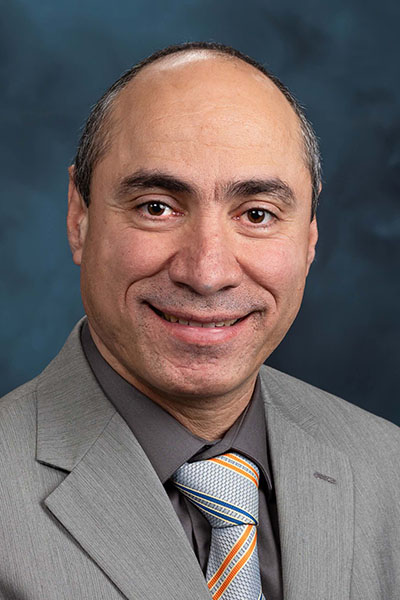Lecturer and Adjunct Associate Professor
Contact Information
- Office Address: Min H. Kao Building, Room 637
- Phone: 865-974-6852
- E-mail: molama@utk.edu
Education
- PhD in electrical engineering, University of Tennessee, Knoxville, TN, 2007
- MS in electrical engineering, University of Jordan, Amman, Jordan, 2001
- BS in electrical engineering, University of Jordan, Amman, Jordan, 1998
Biography
Mohammed Olama received BS and MS (Hons.) degrees in electrical engineering from the University of Jordan, Amman, Jordan, in 1998 and 2001, respectively, and his PhD degree from the UT's Min H. Kao Department of Electrical Engineering and Computer Science in 2007. He is currently a Senior Research Scientist with the Computational Sciences and Engineering Division at Oak Ridge National Laboratory. He is also an Adjunct Associate Professor with EECS. He has more than 180 archival publications (including journals, conference proceedings, book chapters, and technical reports) in addition to numerous presentations at professional conferences and international symposia. His research interests include smart grid and smart buildings; smart grid communications and control; cyber-physical systems; complex systems; wireless communications; healthcare data analytics; machine learning; artificial intelligence; statistical signal processing; and discrete-event simulation.
Research
Mohammed Olama has led and participated in several projects under various DoE, DoD, and DHS programs. He has been involved in various modeling, simulations, controls, and communications projects for improved critical infrastructure efficiency, reliability, and security including the smart grid and healthcare.
His research interests include smart grid and smart buildings; smart grid communications and control; building-to-grid integration; cyber-physical systems; infrastructure modeling and analysis; renewable energy siting; SCADA systems; big data integration and analytics; healthcare data analytics and hazard detection; statistical learning, forecasting, and inference algorithms; machine learning; artificial intelligence; complex systems; statistical signal processing; stochastic channel modeling, power control and localization in wireless networks; wireless sensor networks; wireless security; and discrete-event simulation.
Google Scholar